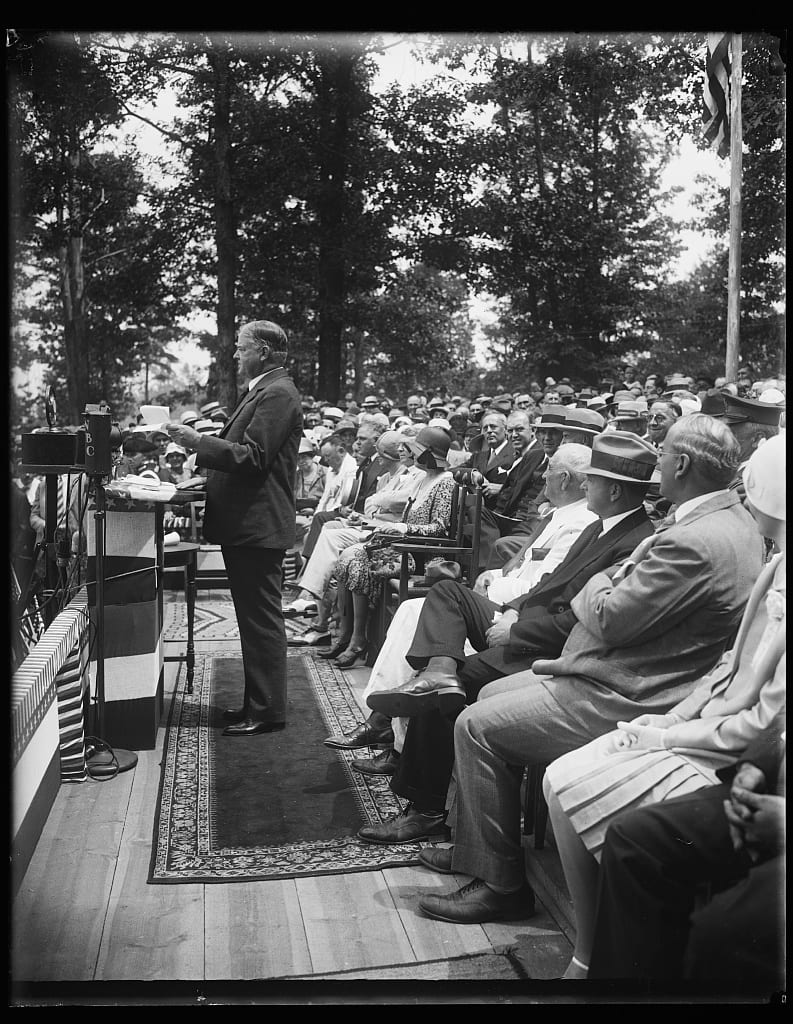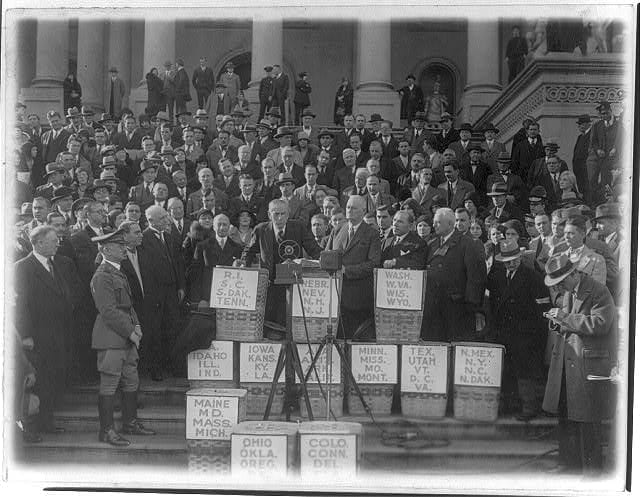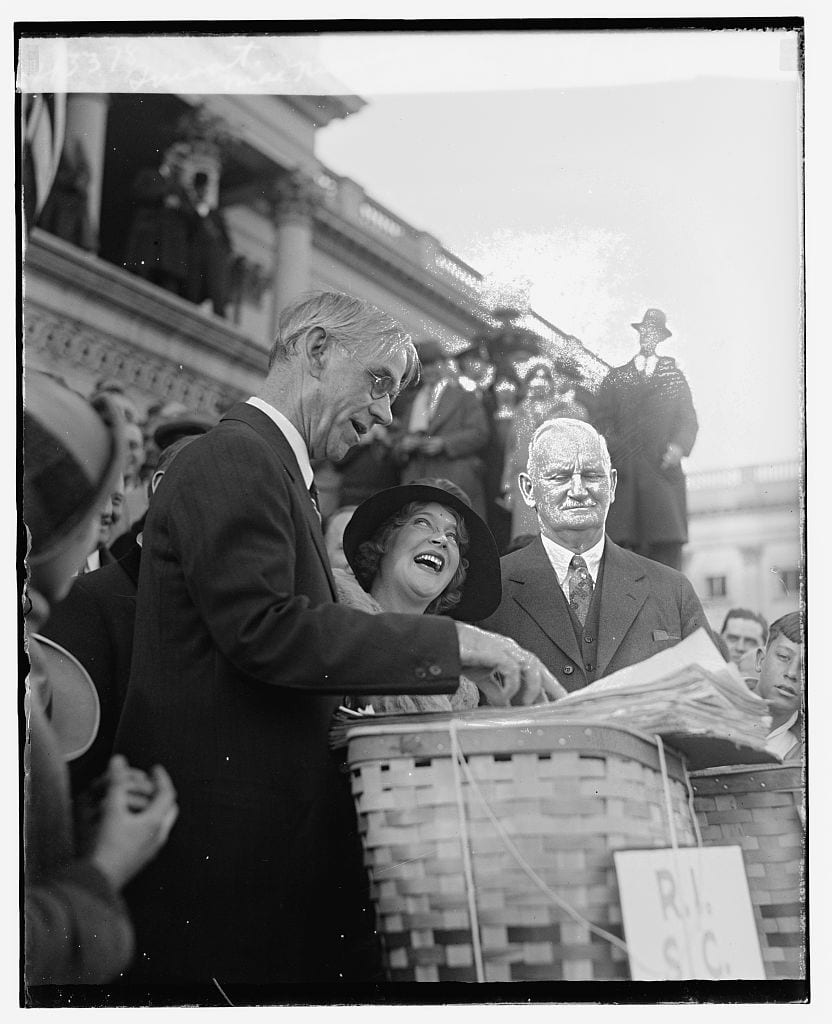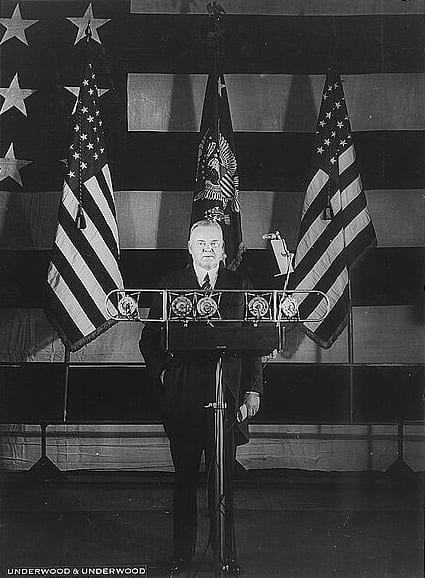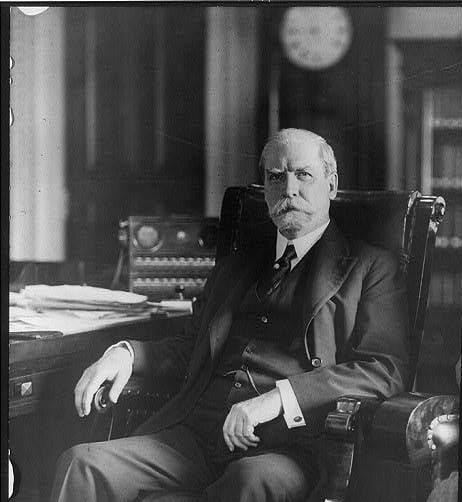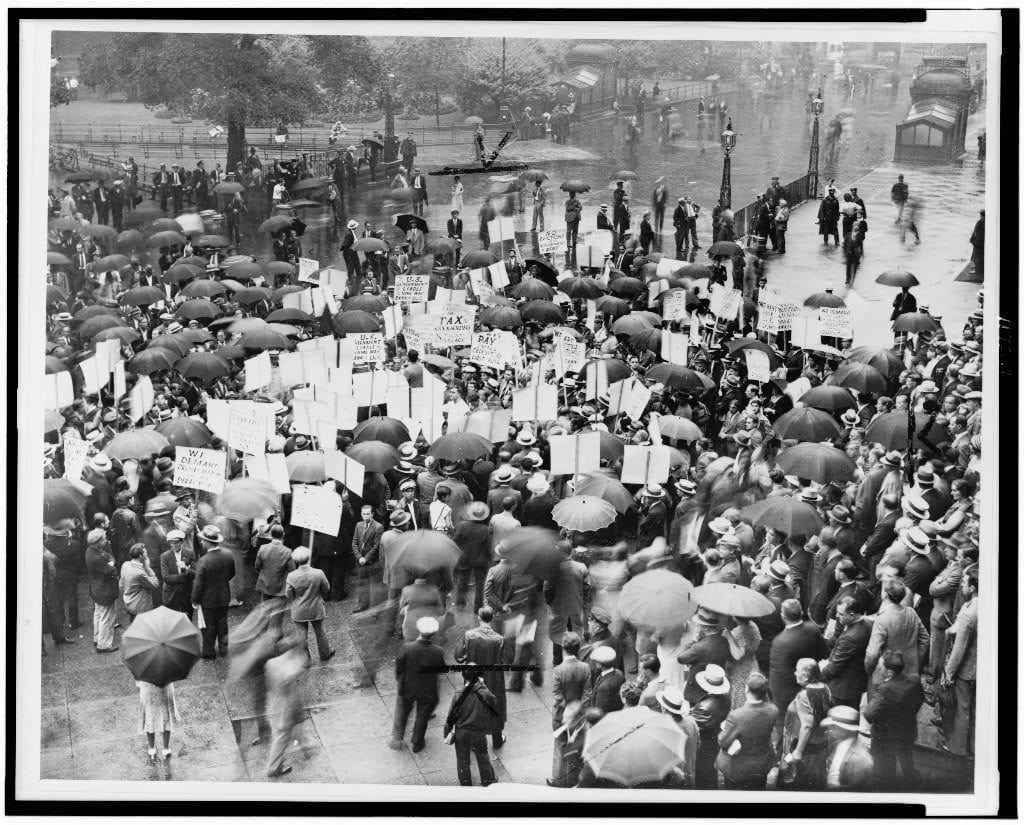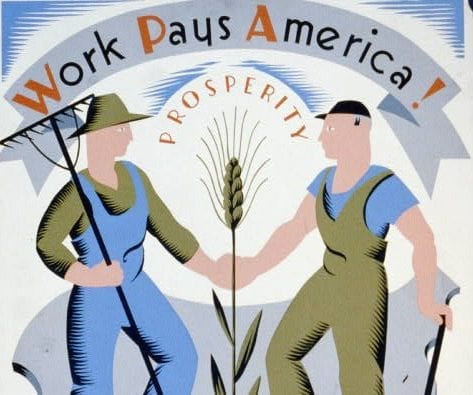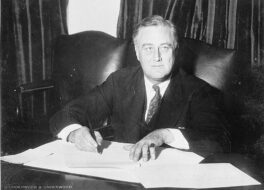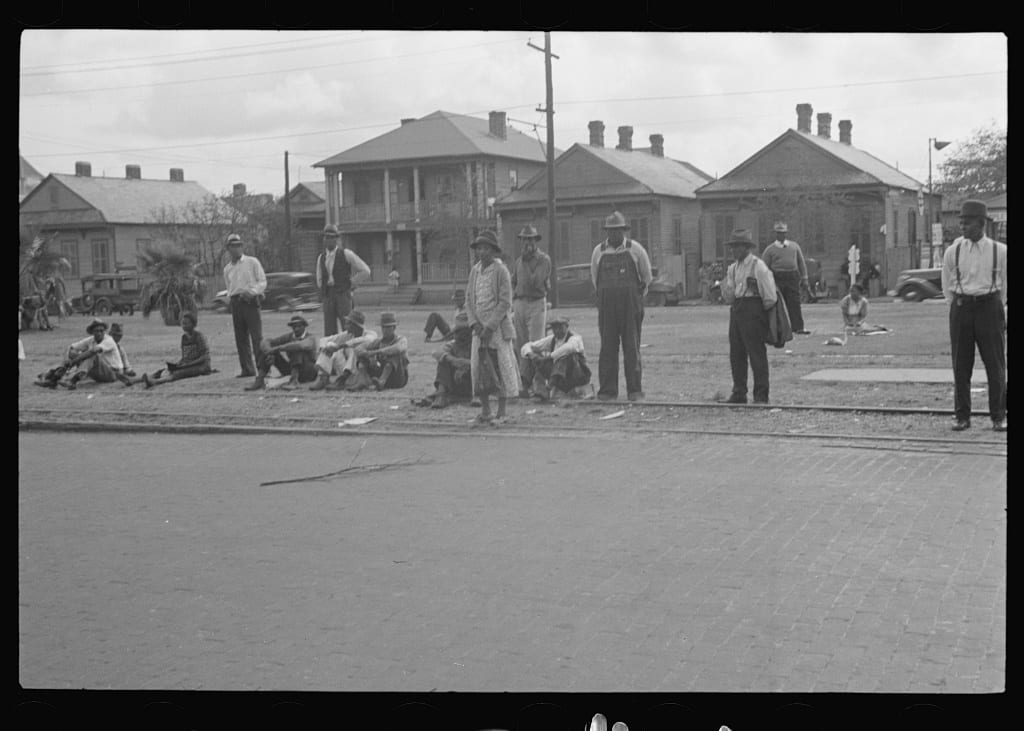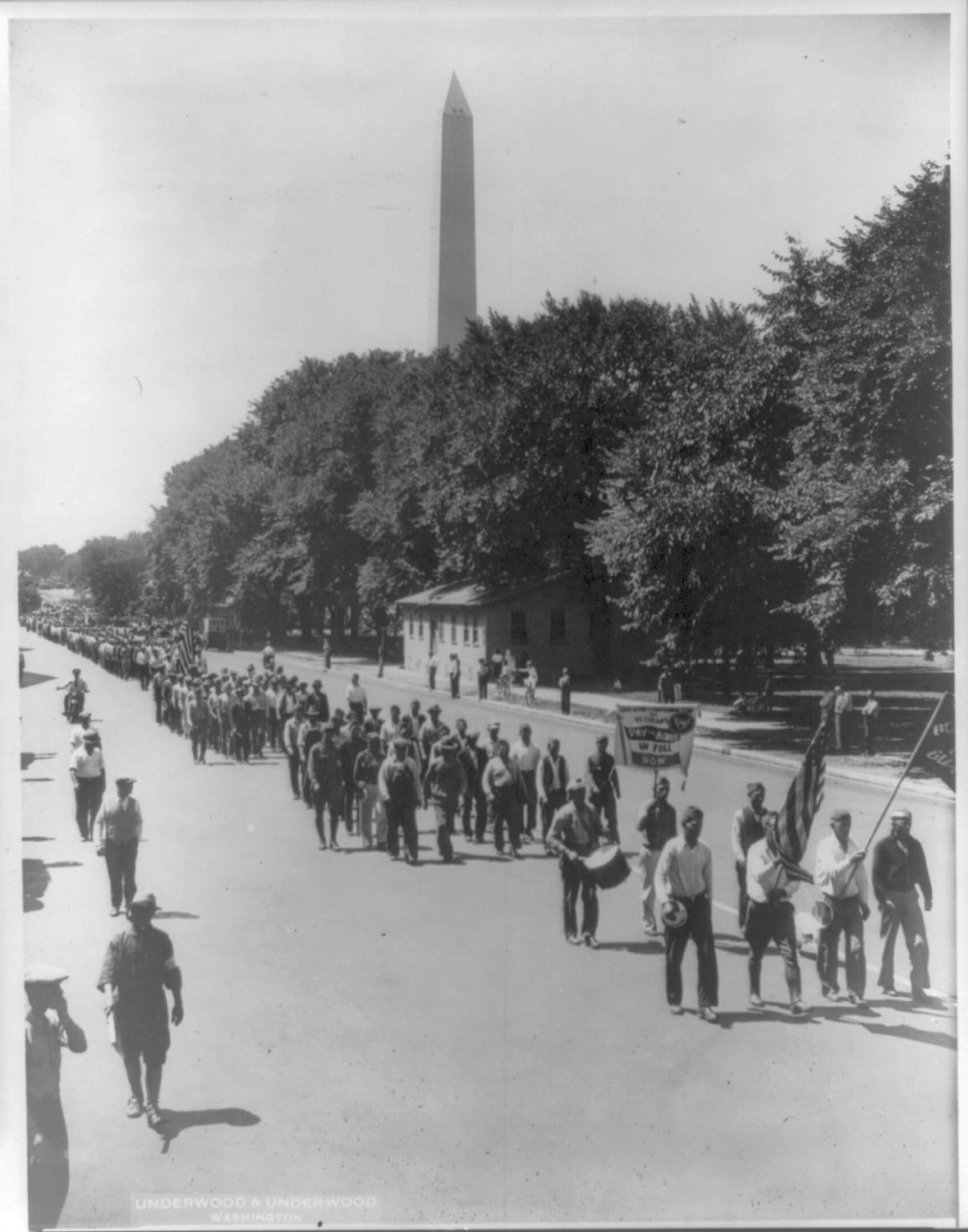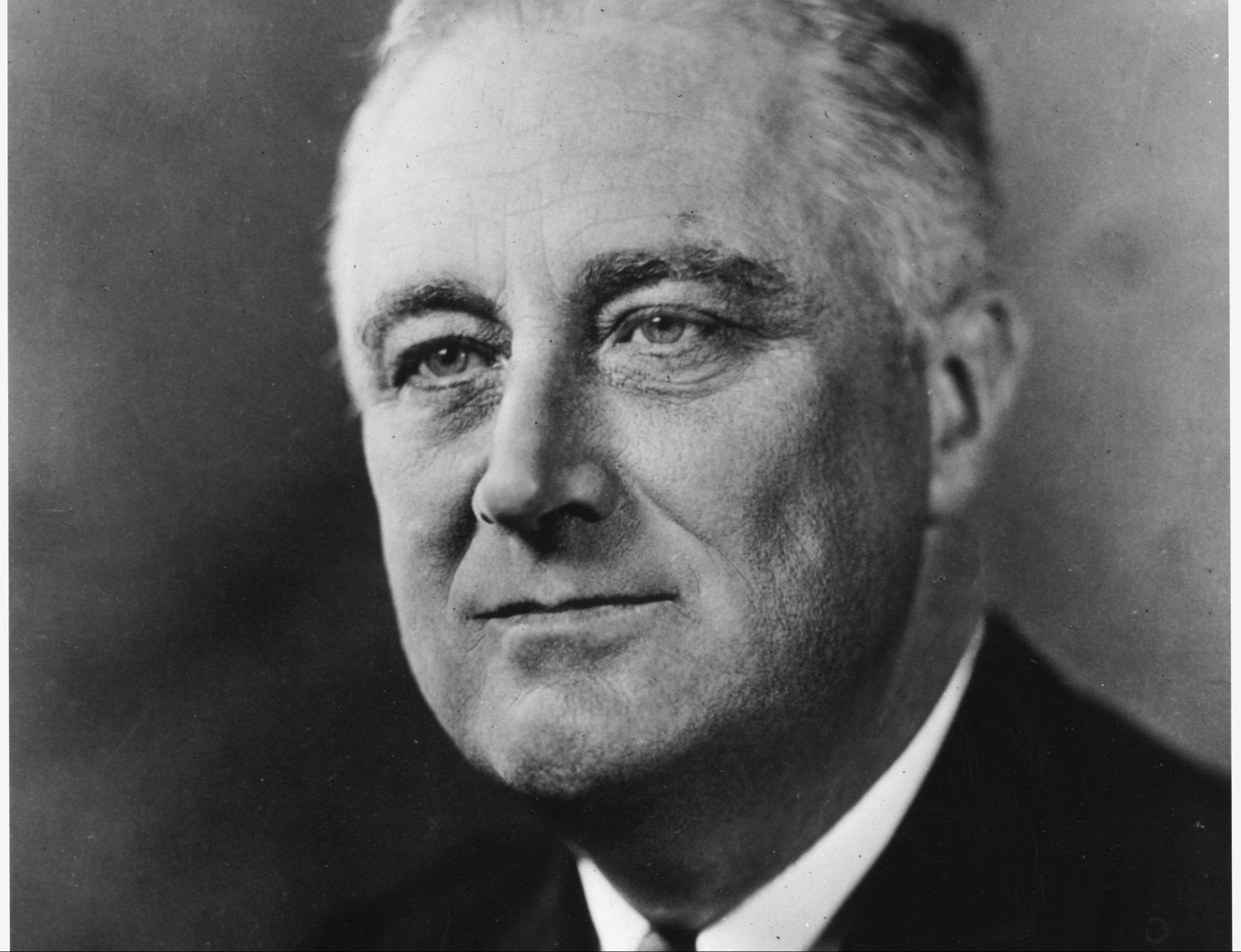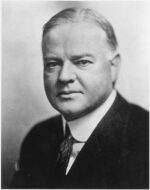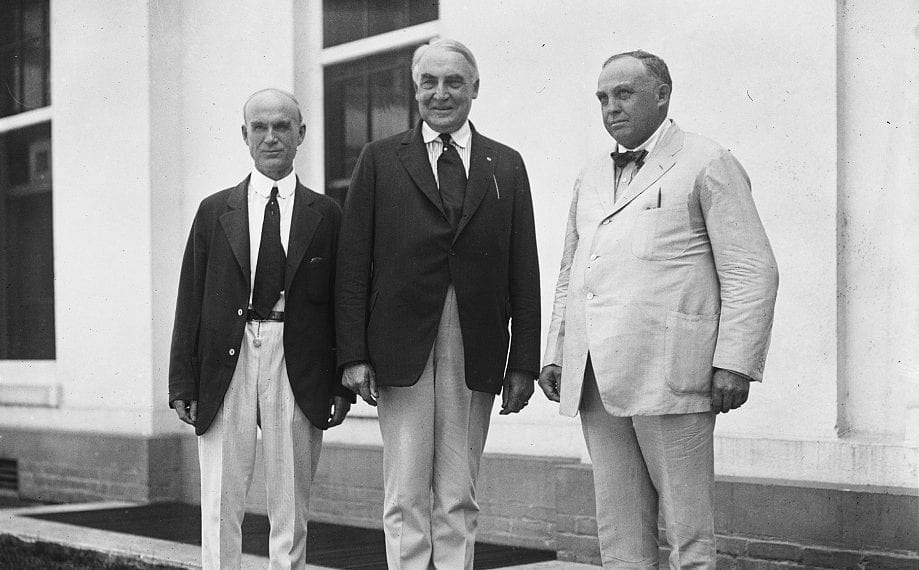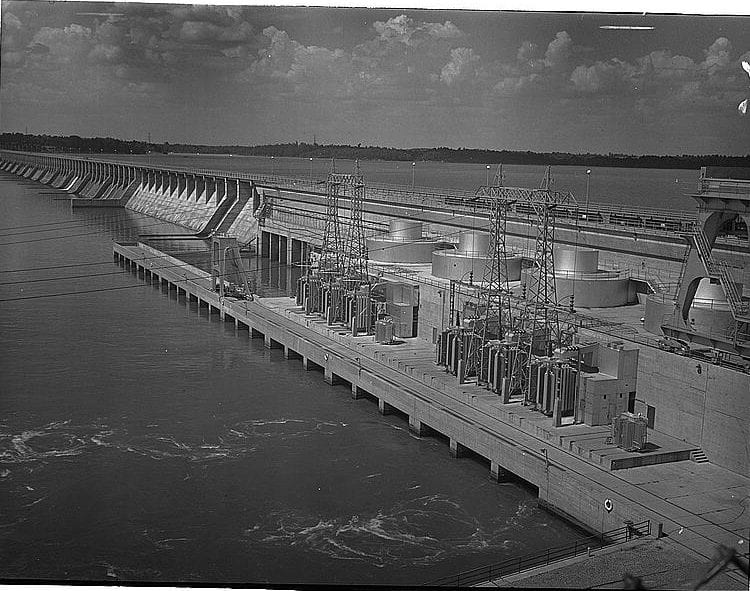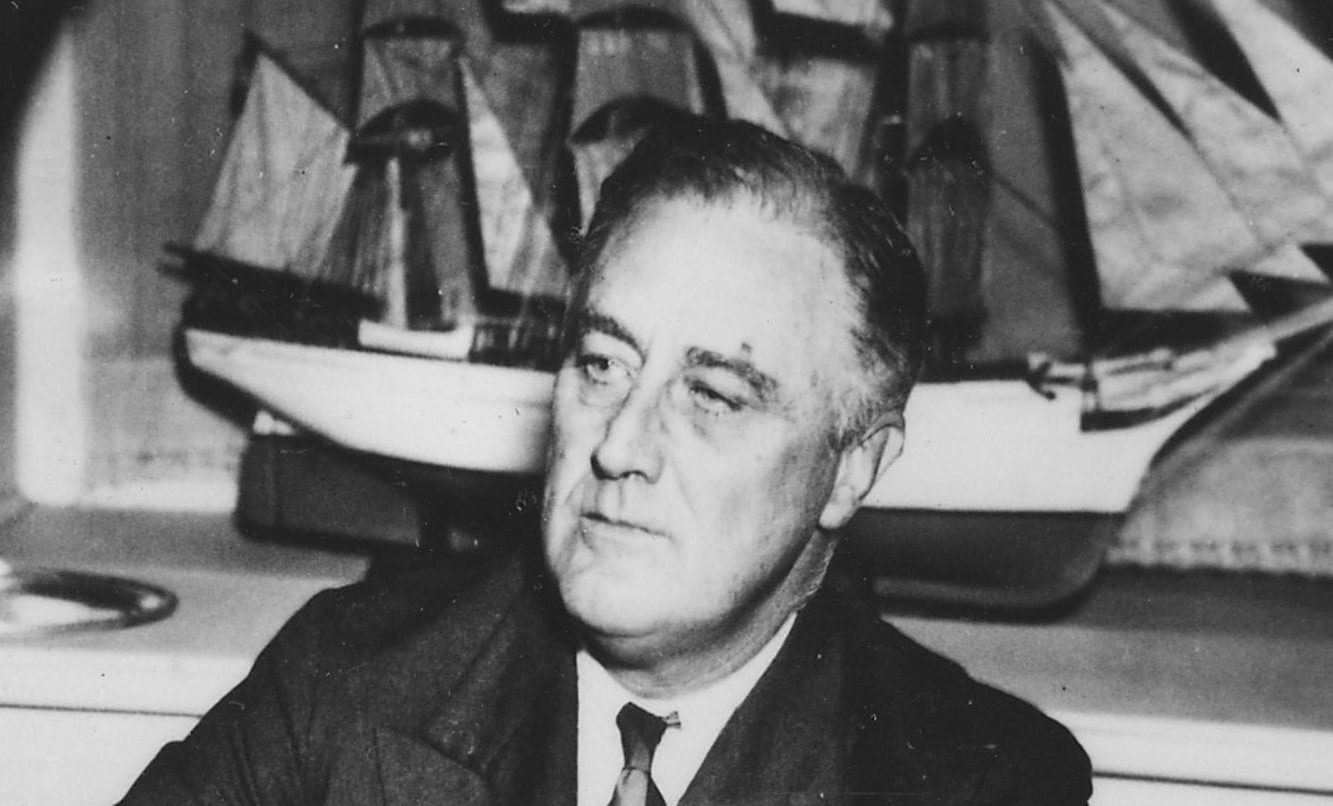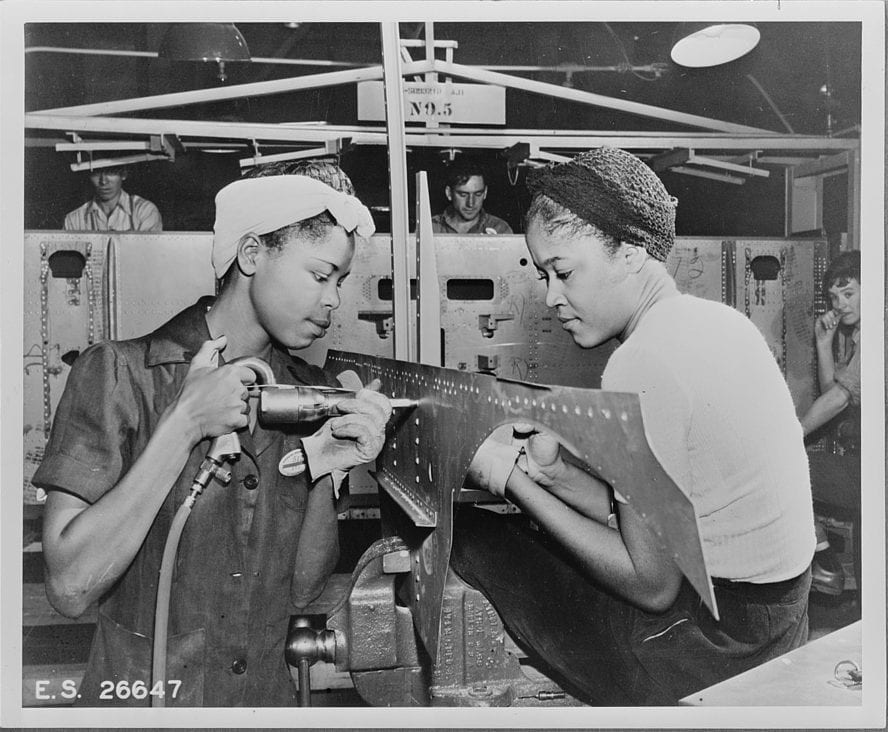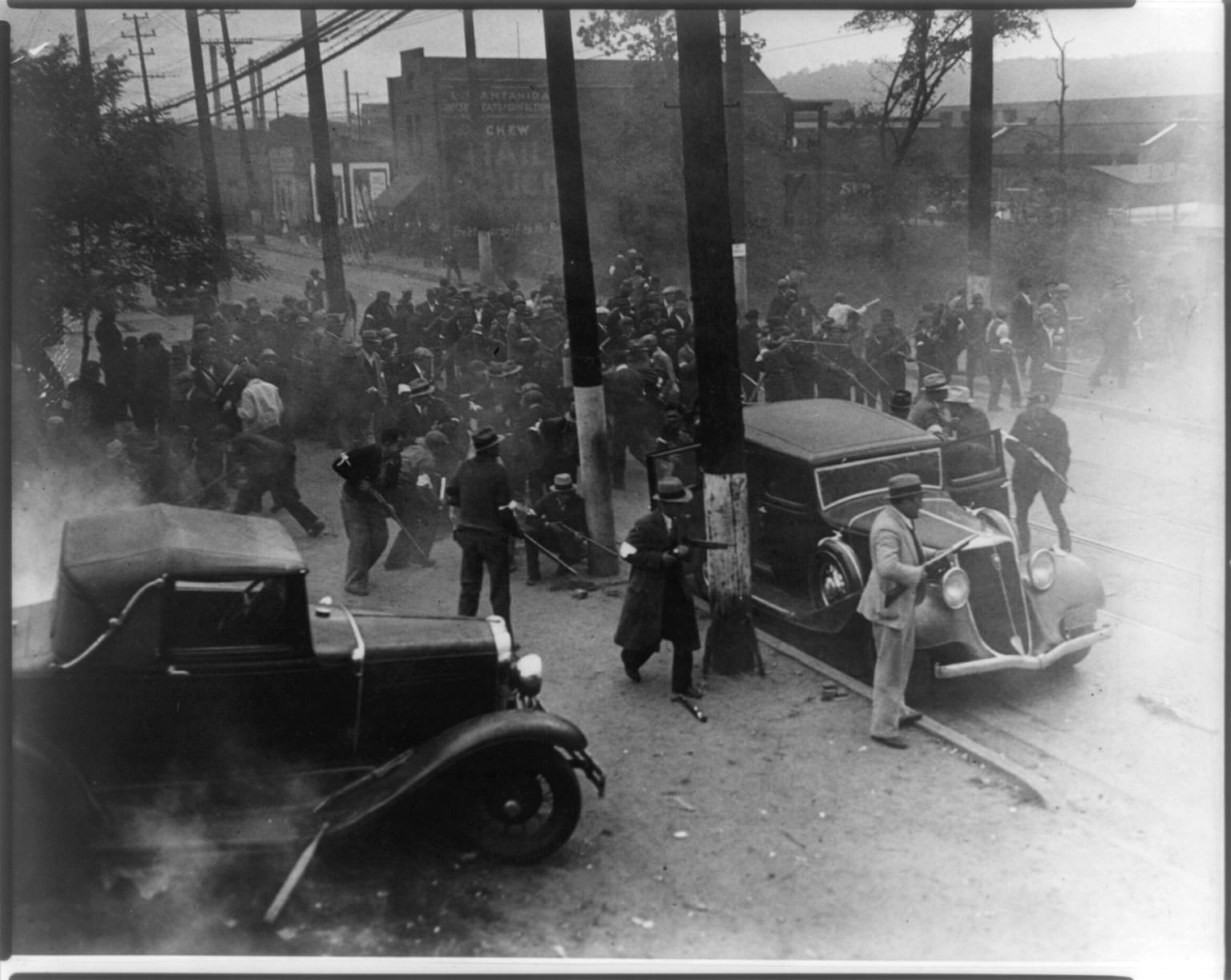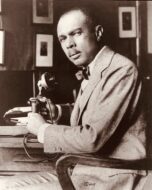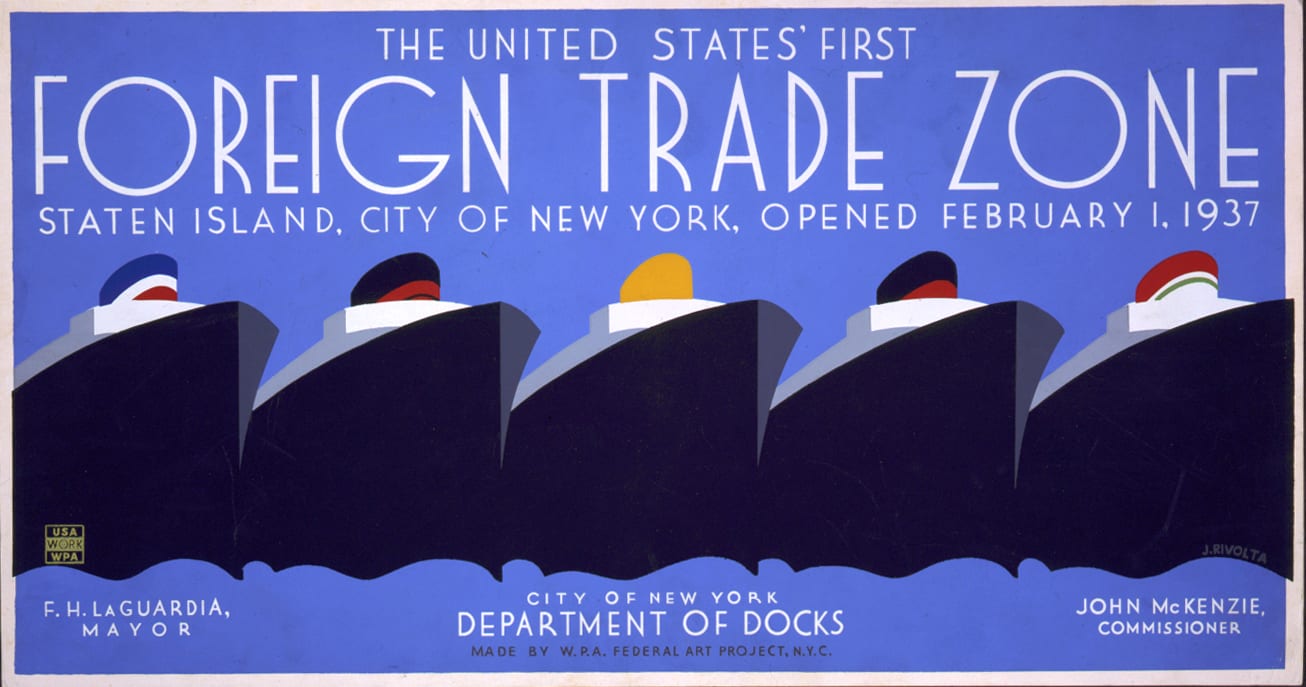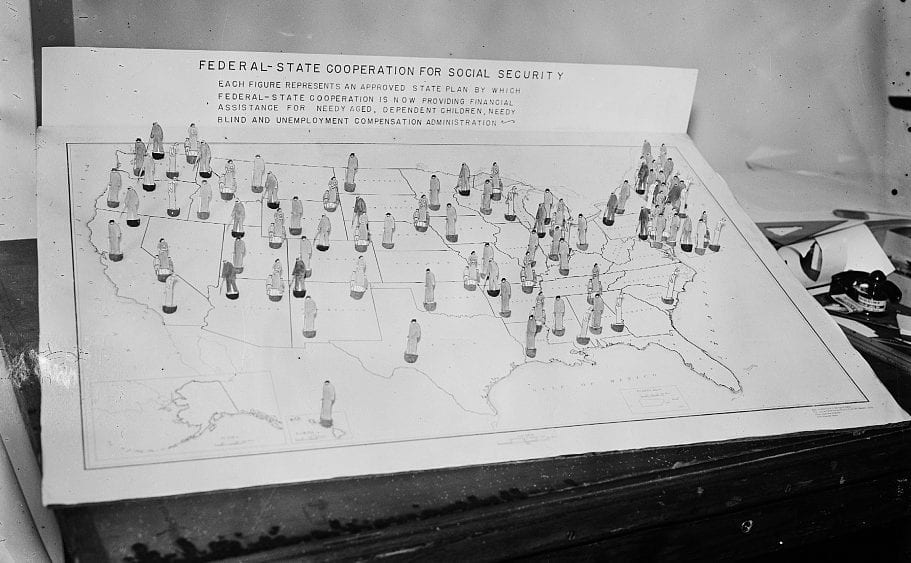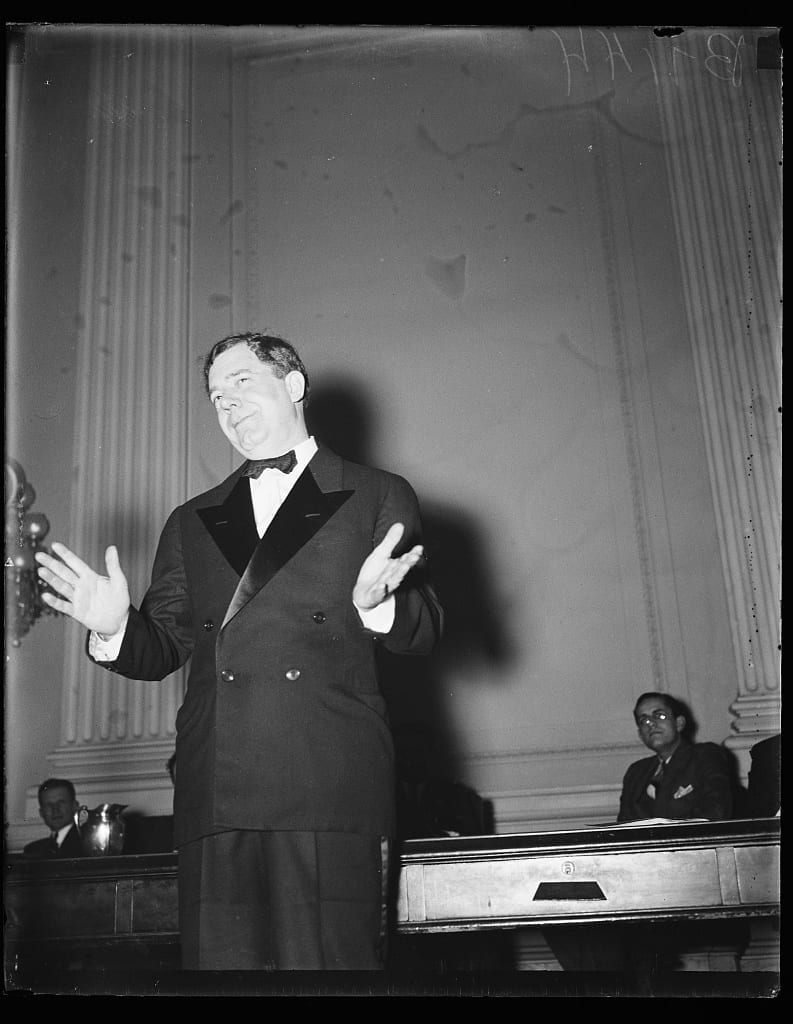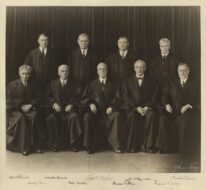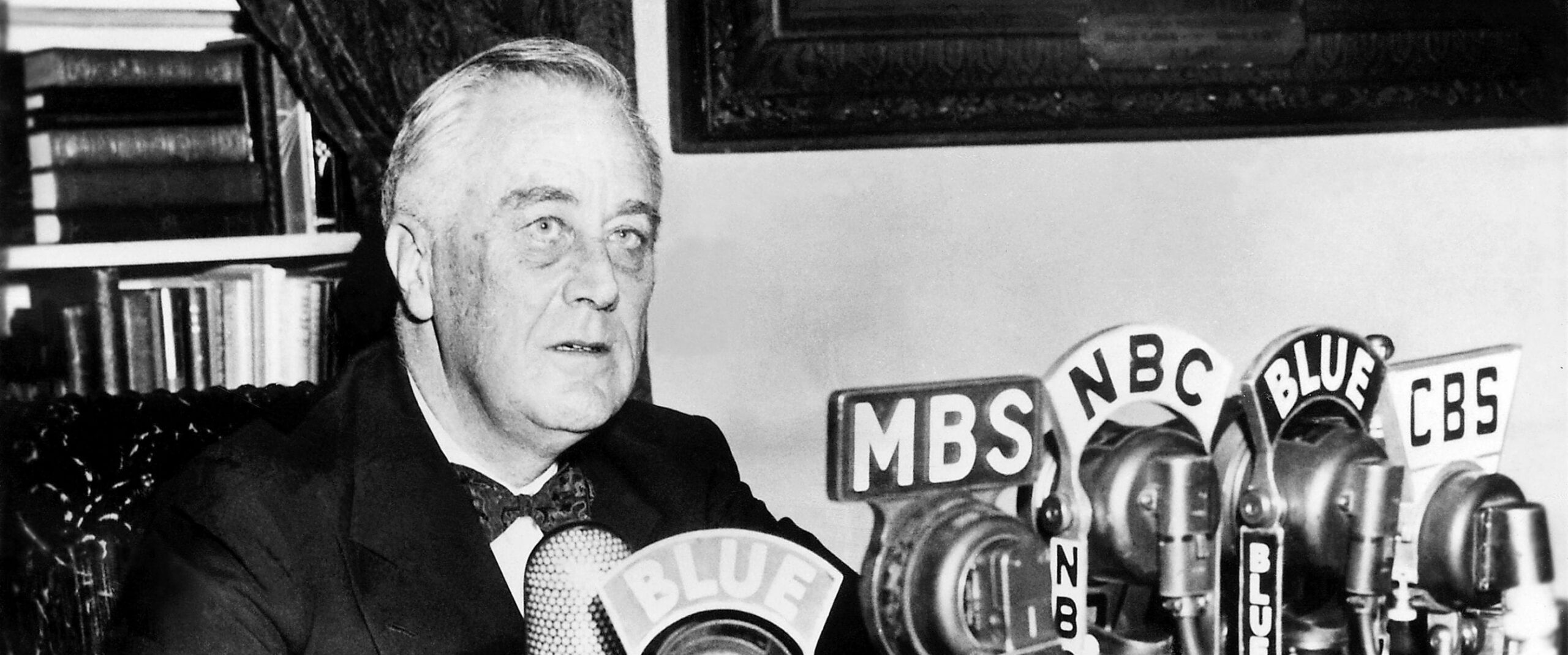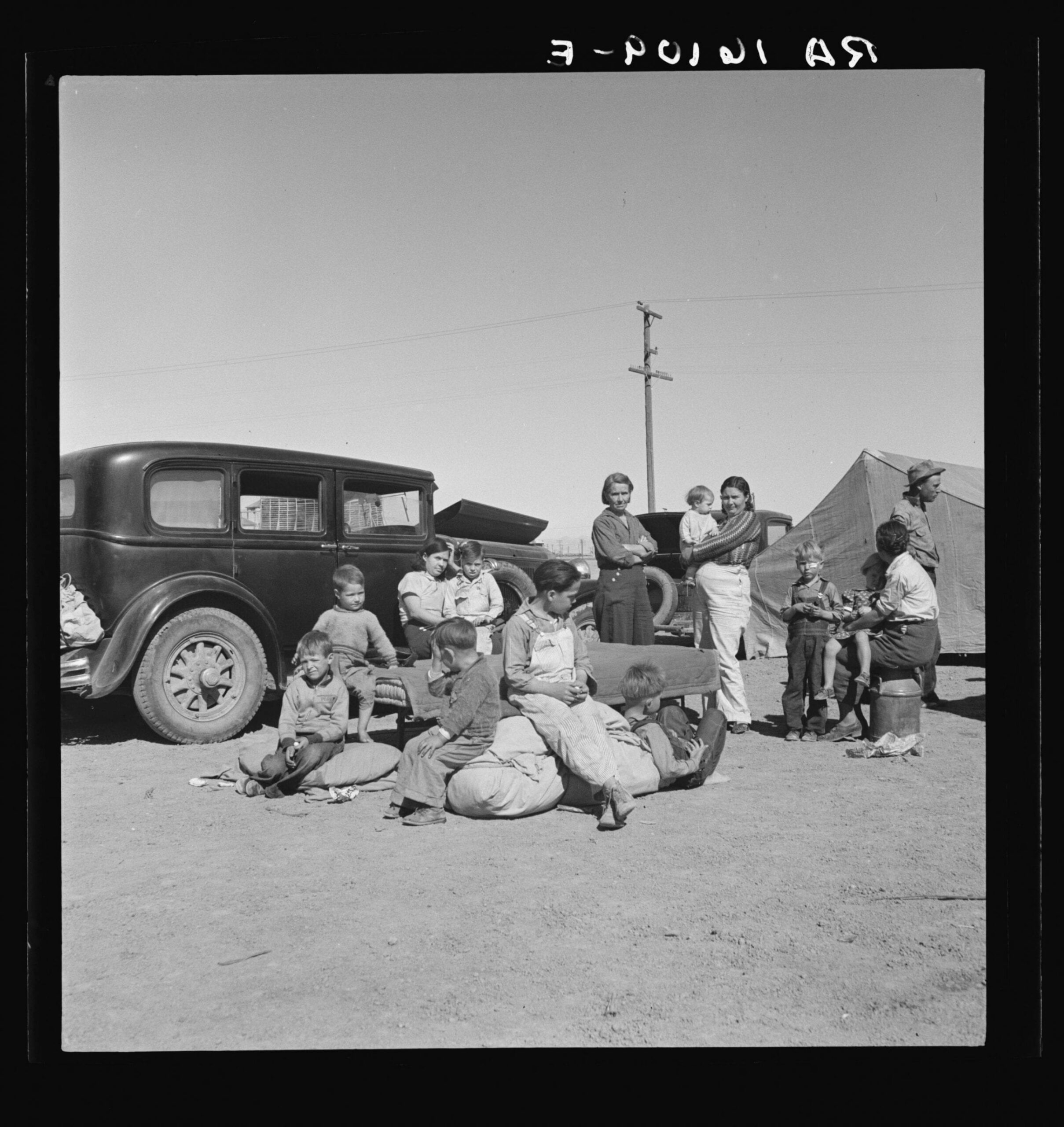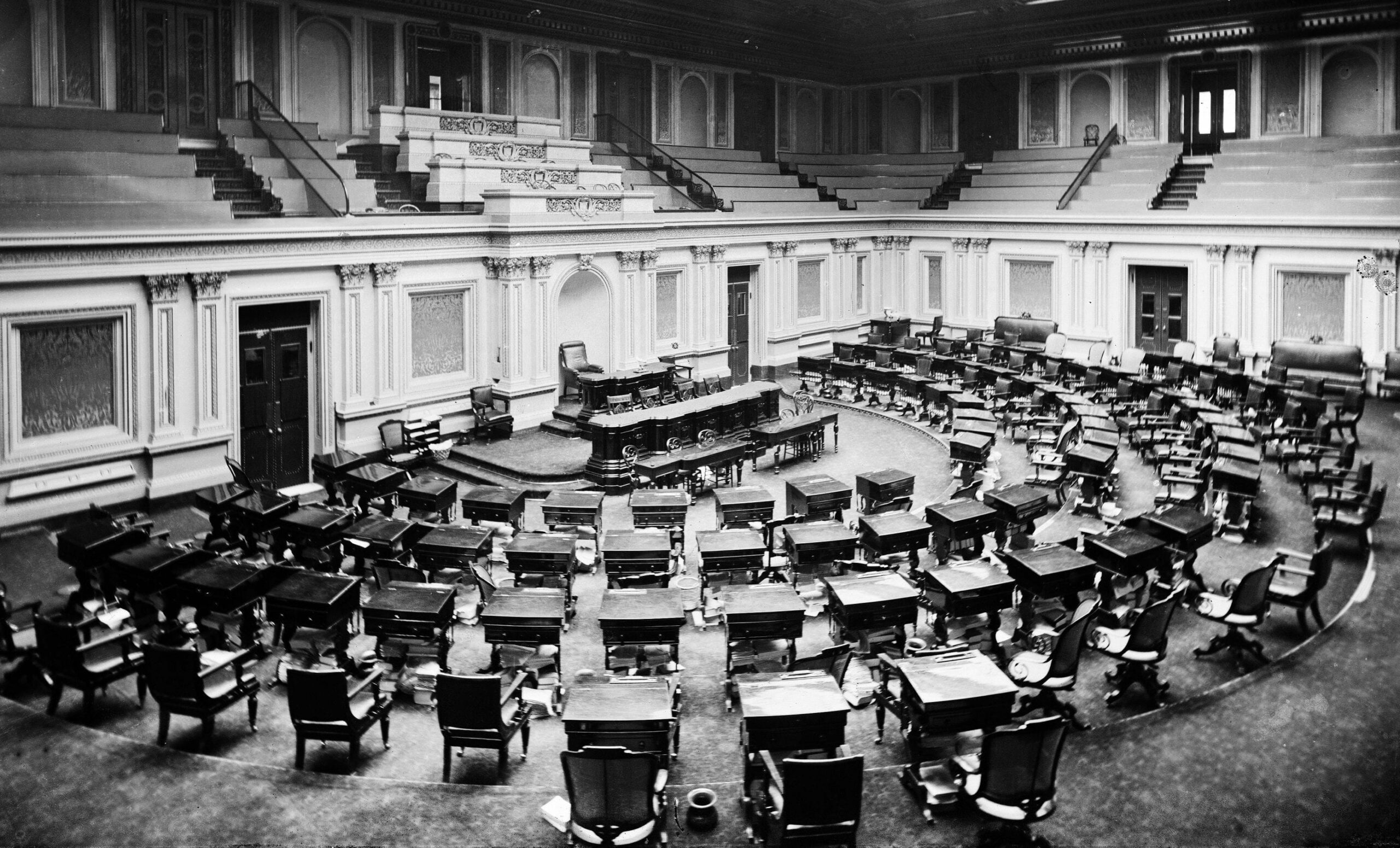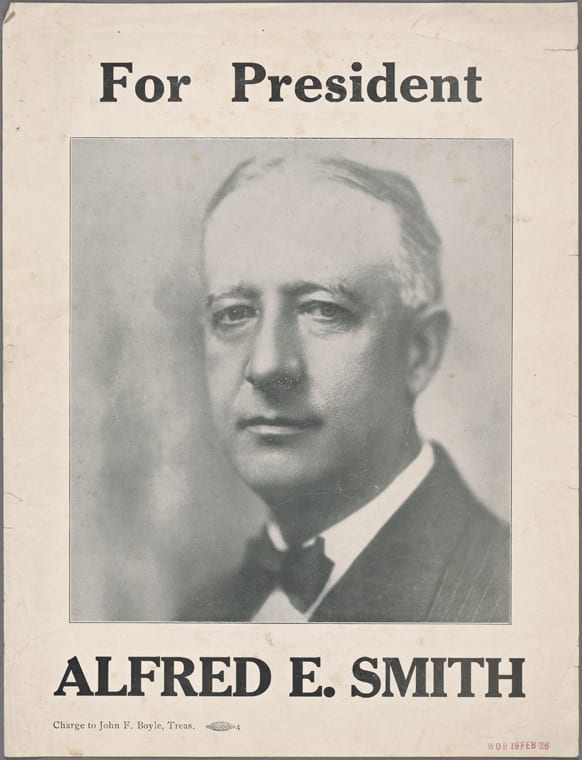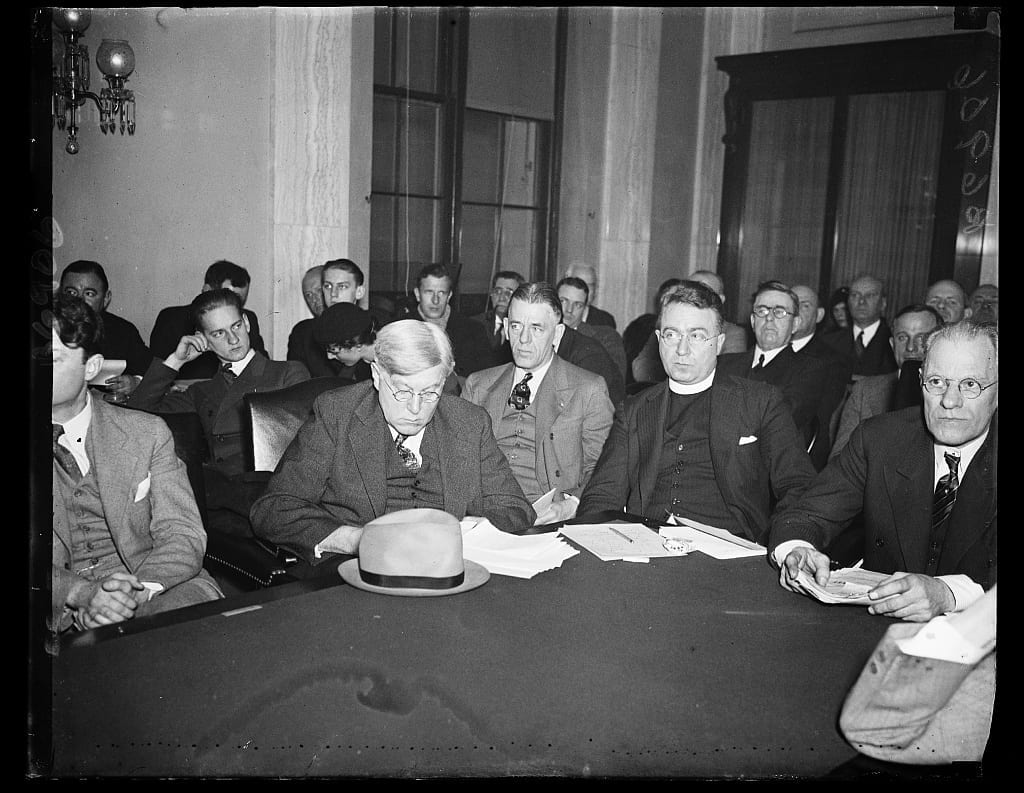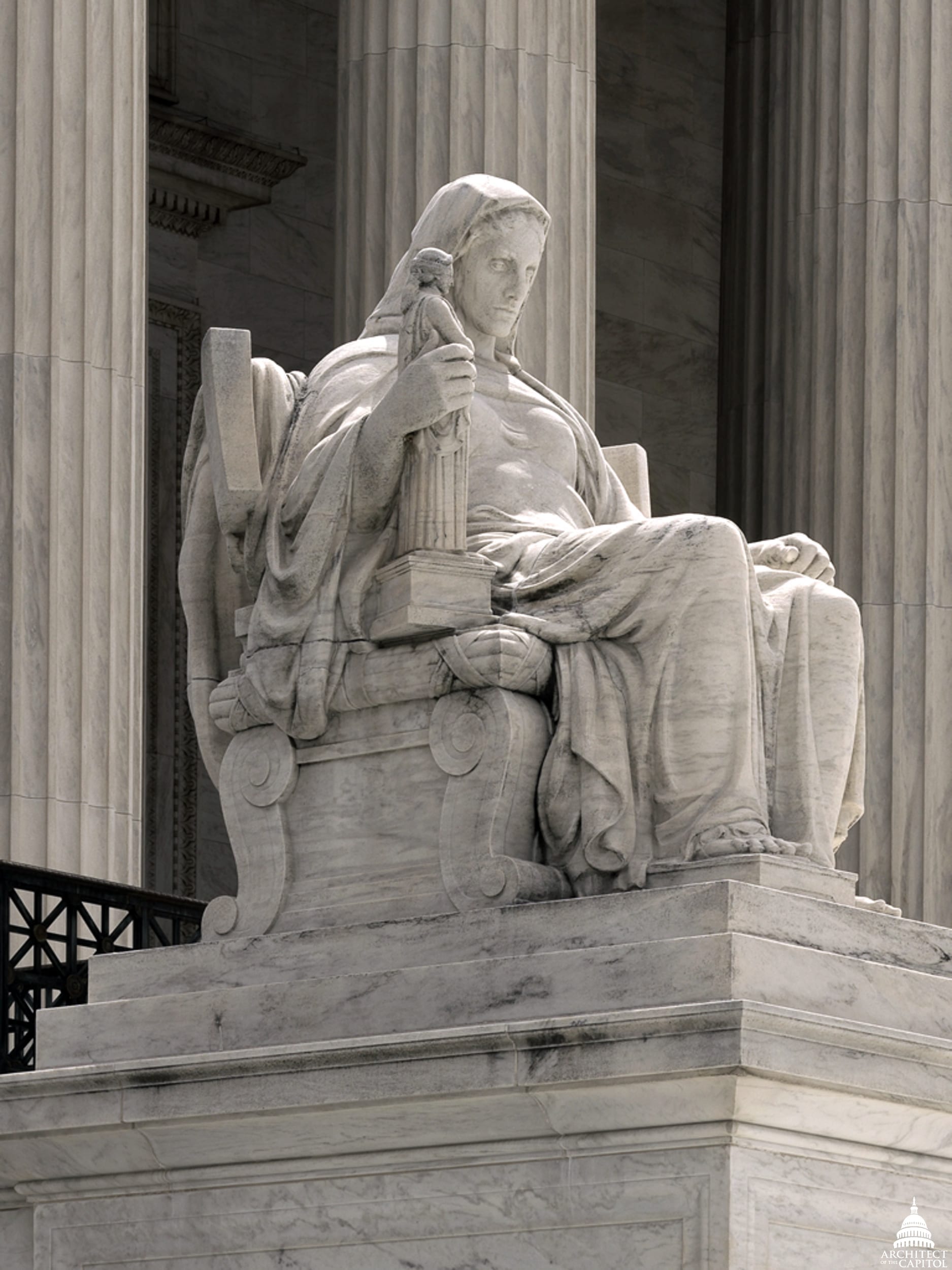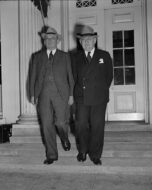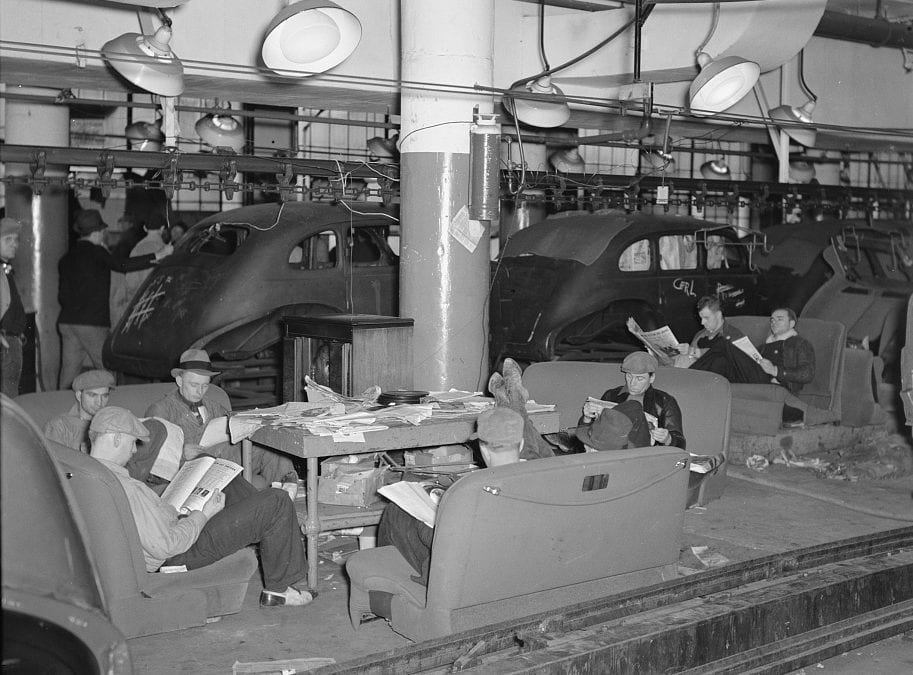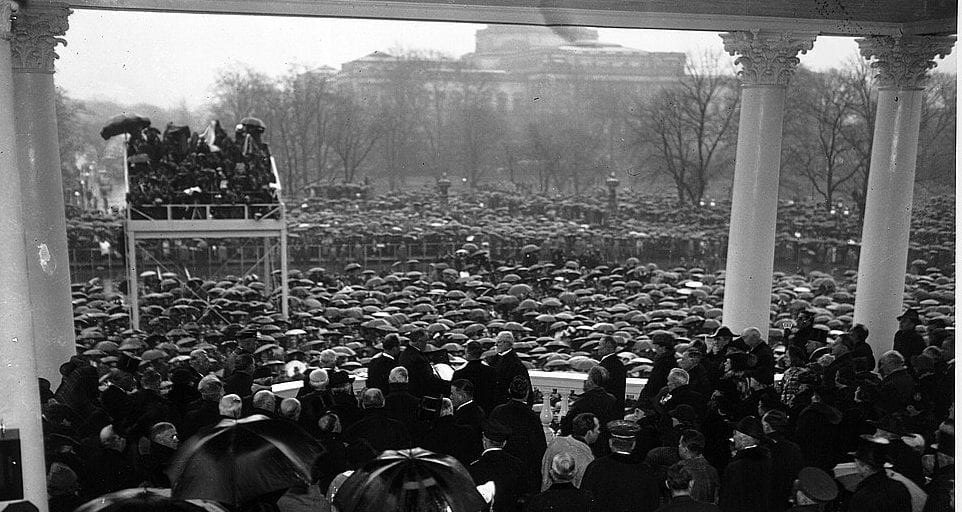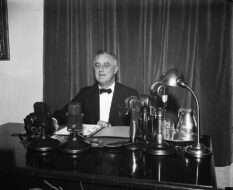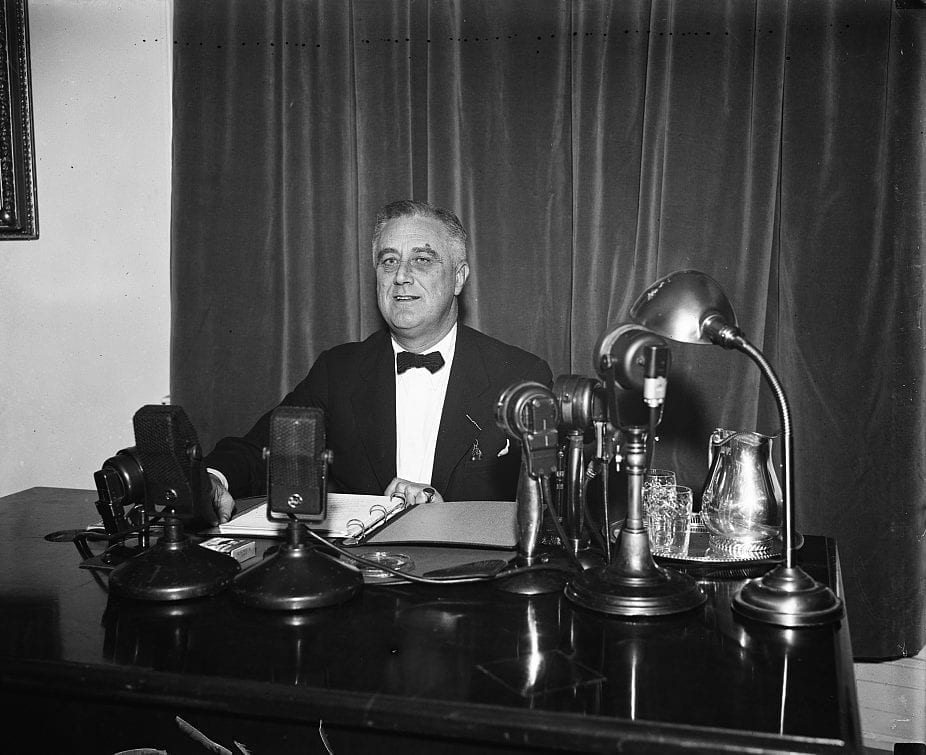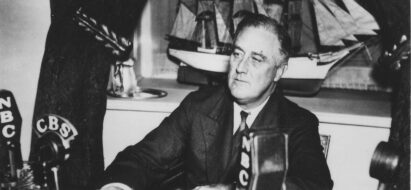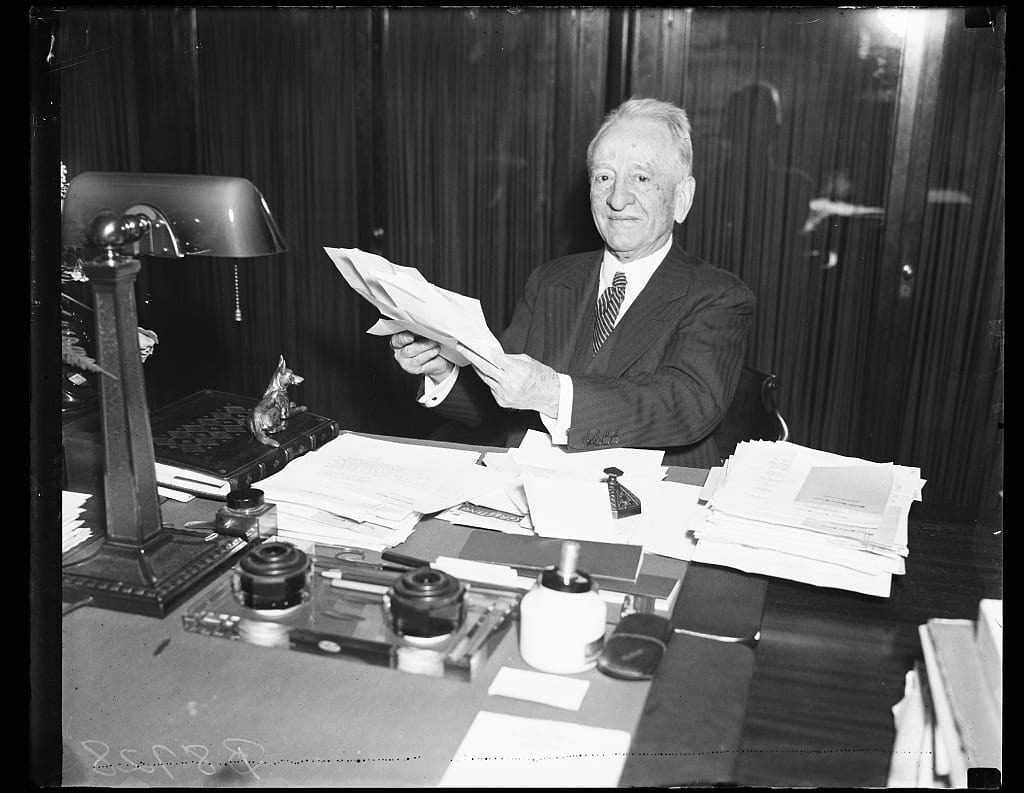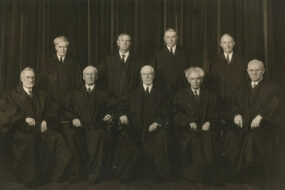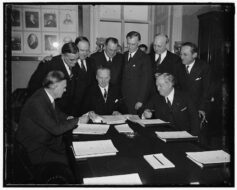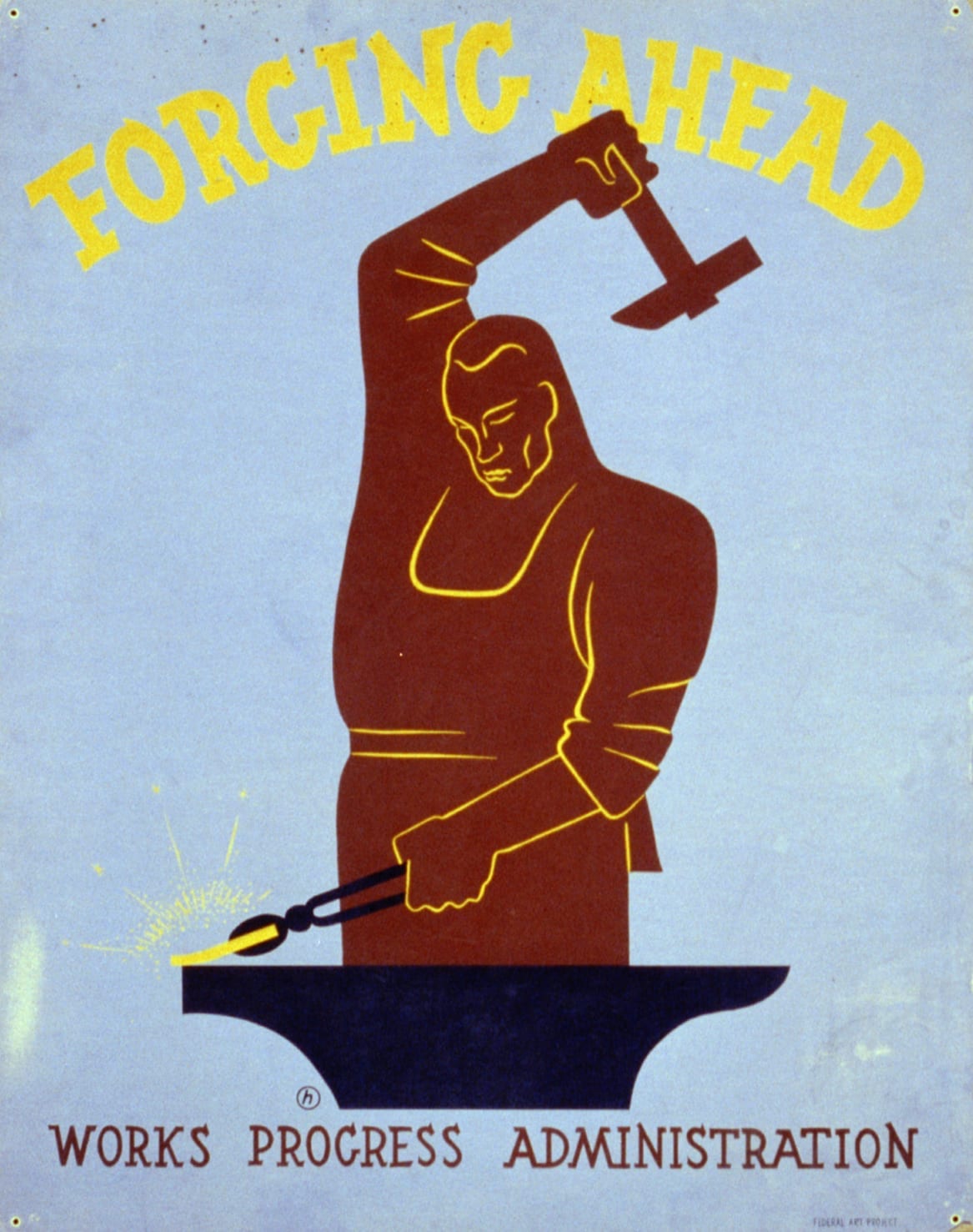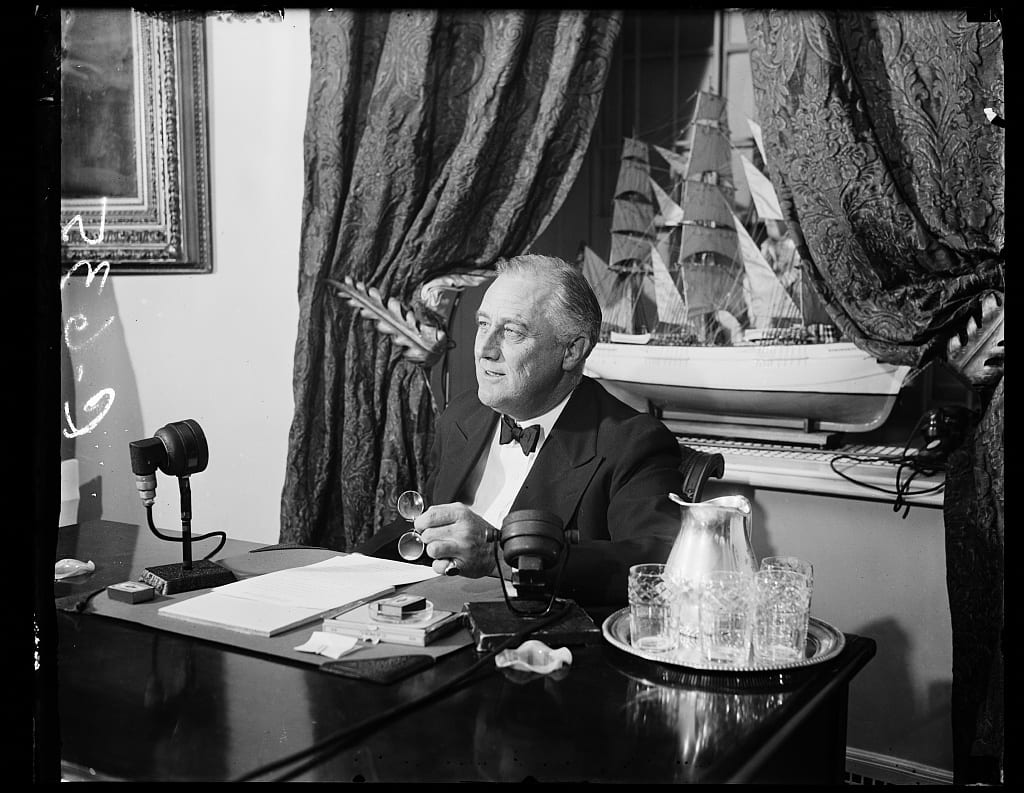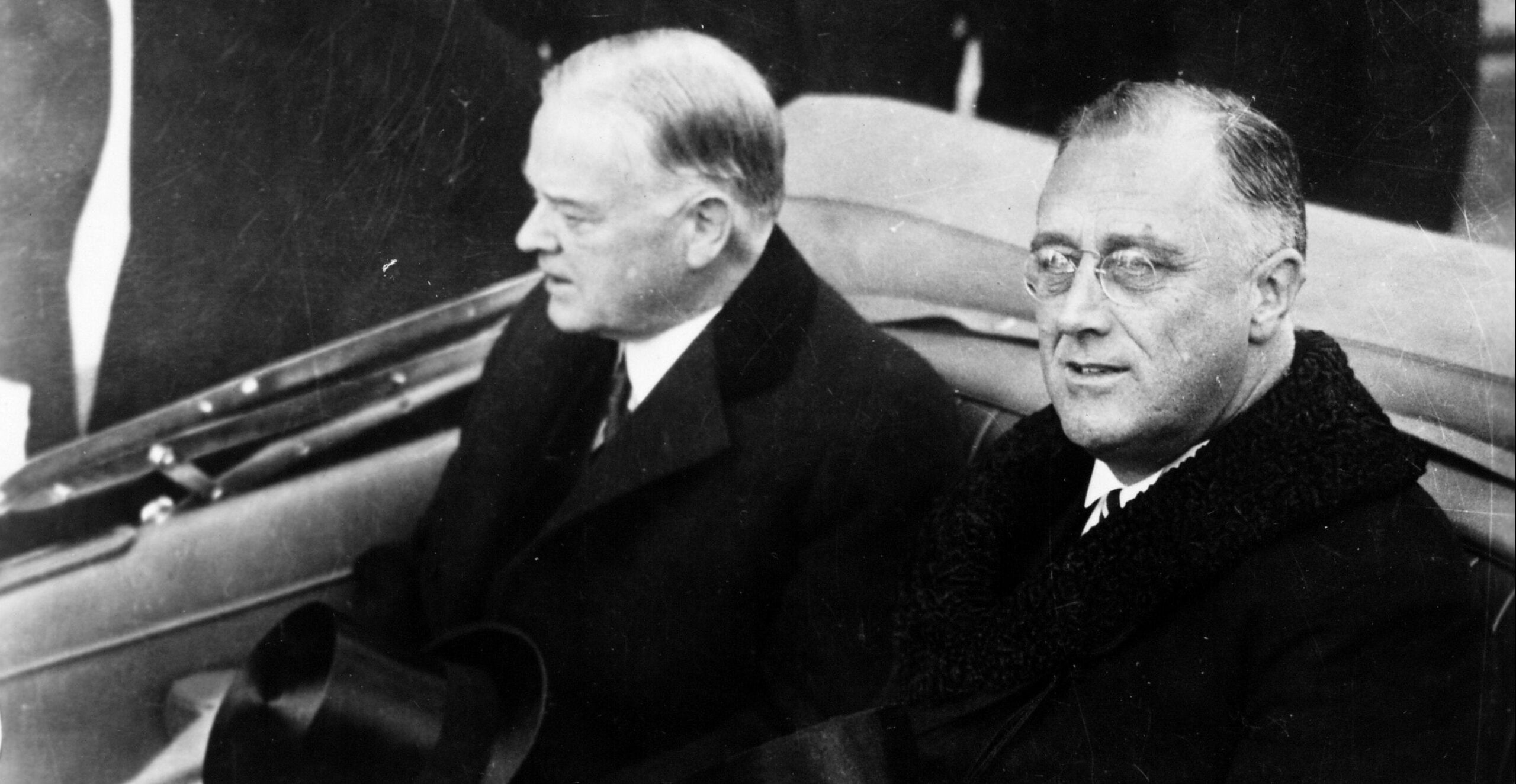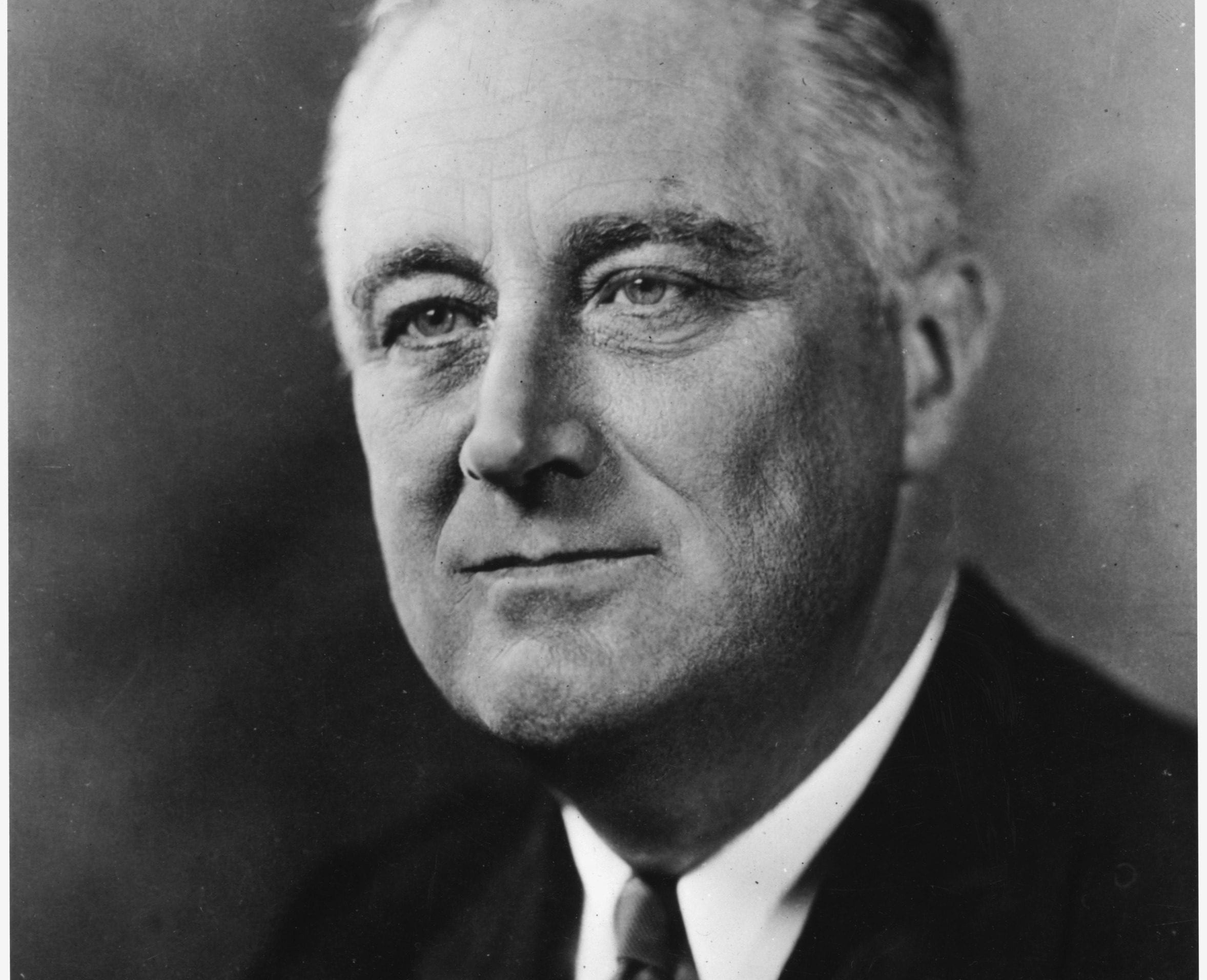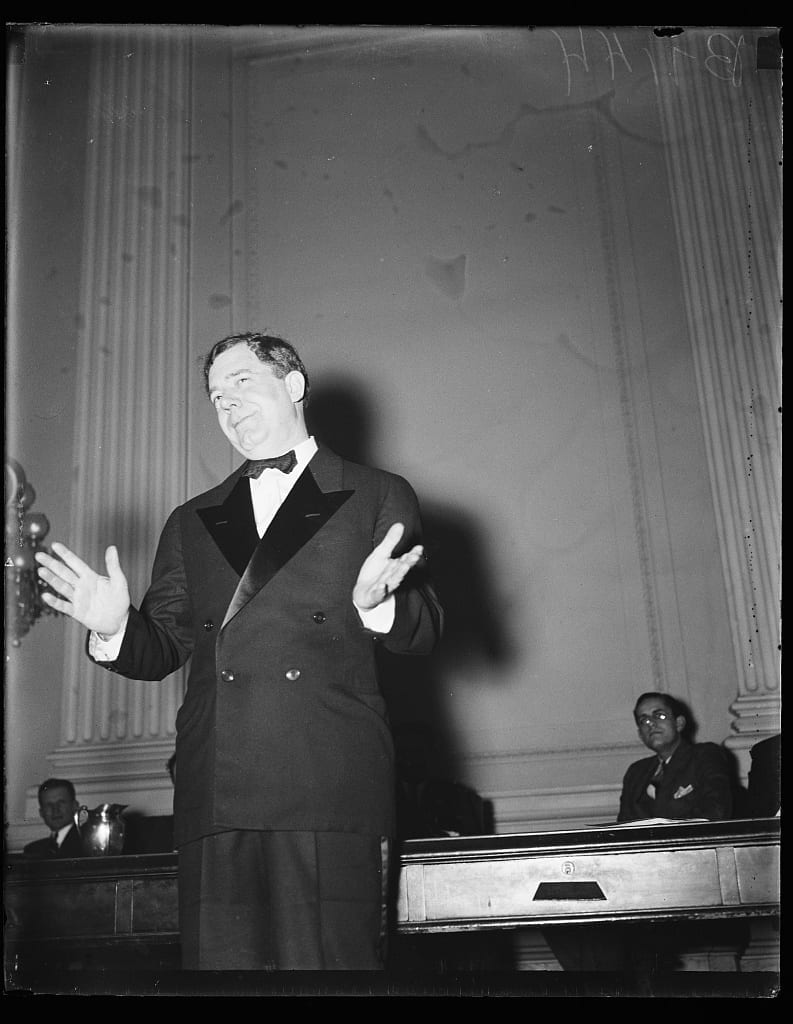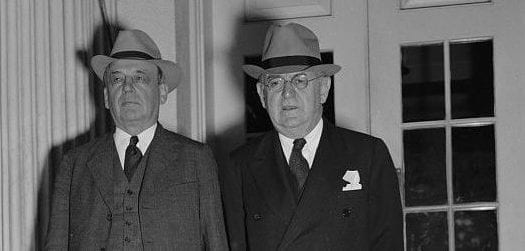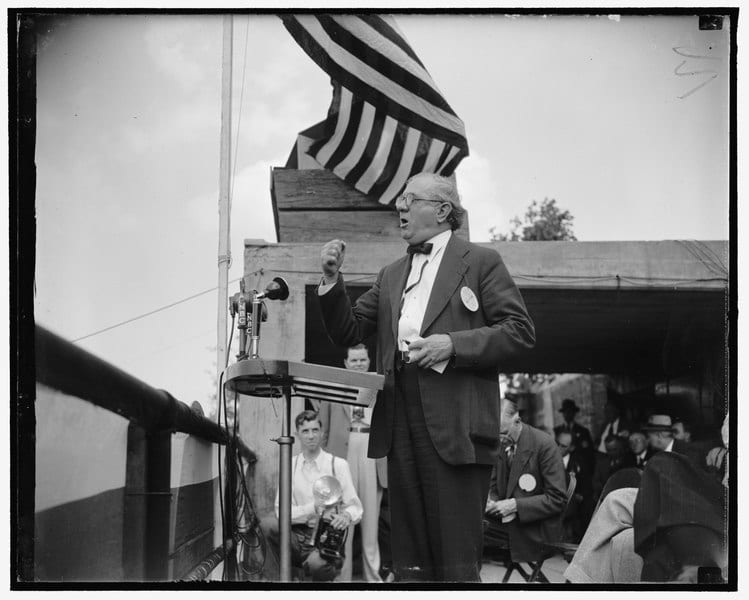


No related resources
Introduction
During World War I the federal government constructed a series of hydroelectric plants on the Tennessee River at Muscle Shoals, Alabama, for the purpose of extracting nitrates for the manufacture of explosives. One of the recurring political battles of the 1920s involved the question of what should be done with those plants. Republicans favored selling them off to private business, but they were repeatedly rebuffed by a coalition of Democrats and progressive Republicans. Their proposal was that the plants continue to be operated by the government, both for the production of nitrates for fertilizer and as a source of cheap electricity for the rural South. Congress in early 1931 approved a bill that would do just that, eliciting a sharp veto message from Hoover. Government, the president insisted, must not conduct business in competition with private concerns.
Source: Herbert Hoover, “Veto of the Muscle Shoals Resolution,” March 3, 1931. Online by Gerhard Peters and John T. Woolley, The American Presidency Project. http://www.presidency.ucsb.edu/ws/?pid=23008.
I return herewith, without my approval, Senate Joint Resolution 49, “To provide for the national defense by the creation of a corporation for the operation of the Government properties at and near Muscle Shoals in the State of Alabama; to authorize the letting of the Muscle Shoals properties under certain conditions; and for other purposes.”
This bill proposes the transformation of the war plant at Muscle Shoals, together with important expansions, into a permanently operated Government institution for the production and distribution of power and the manufacture of fertilizers. . . .
The purpose of the bill is to provide production and wholesale distribution of surplus power and to give preference to States, municipalities, and cooperative organizations. It further provides that the policy of the Government must be to distribute the surplus power equitably amongst States, counties, and municipalities within transmission distance of Muscle Shoals and provides for the construction of transmission lines to effect this purpose. . . .
I am firmly opposed to the Government entering into any business the major purpose of which is competition with our citizens. There are national emergencies which require that the Government should temporarily enter the field of business, but they must be emergency actions and in matters where the cost of the project is secondary to much higher considerations. There are many localities where the Federal Government is justified in the construction of great dams and reservoirs, where navigation, flood control, reclamation or stream regulation are of dominant importance, and where they are beyond the capacity or purpose of private or local government capital to construct. In these cases power is often a by-product and should be disposed of by contract or lease. But for the Federal Government deliberately to go out to build up and expand such an occasion to the major purpose of a power and manufacturing business is to break down the initiative and enterprise of the American people; it is destruction of equality of opportunity amongst our people; it is the negation of the ideals upon which our civilization has been based.
This bill raises one of the important issues confronting our people. That is squarely the issue of Federal Government ownership and operation of power and manufacturing business not as a minor by-product but as a major purpose. Involved in this question is the agitation against the conduct of the power industry. The power problem is not to be solved by the Federal Government going into the power business, nor is it to be solved by the project in this bill. The remedy for abuses in the conduct of that industry lies in regulation and not by the Federal Government entering upon the business itself. I have recommended to the Congress on various occasions that action should be taken to establish Federal regulation of interstate power in cooperation with State authorities. This bill would launch the Federal Government upon a policy of ownership and operation of power utilities upon a basis of competition instead of by the proper Government function of regulation for the protection of all the people. I hesitate to contemplate the future of our institutions, of our Government, and of our country if the preoccupation of its officials is to be no longer the promotion of justice and equal opportunity but is to be devoted to barter in the markets. That is not liberalism, it is degeneration. . . .
This bill distinctly proposes to enter the field of powers reserved to the States. It would deprive the adjacent States of the right to control rates for this power and would deprive them of taxes on property within their borders and would invade and weaken the authority of local government. . . .
I sympathize greatly with the desire of the people of Tennessee and Alabama to see this great asset turned to practical use. It can be so turned and to their benefit. I am loath to leave a subject of this character without a suggestion for solution. Congress has been thwarted for 10 years in finding solution, by rivalry of private interests and by the determination of certain groups to commit the Federal Government to Government ownership and operation of power.
The real development of the resources and the industries of the Tennessee Valley can only be accomplished by the people in that valley themselves. Muscle Shoals can only be administered by the people upon the ground, responsible to their own communities, directing them solely for the benefit of their communities and not for purposes of pursuit of social theories or national politics. Any other course deprives them of liberty.
I would therefore suggest that the States of Alabama and Tennessee who are the ones primarily concerned should set up a commission of their own representatives together with a representative from the national farm organizations and the Corps of Army Engineers; that there be vested in that commission full authority to lease the plants at Muscle Shoals in the interest of the local community and agriculture generally. It could lease the nitrate plants to the advantage of agriculture. The power plant is today earning a margin over operating expenses. Such a commission could increase this margin without further capital outlay and should be required to use all such margins for the benefit of agriculture.
The Federal Government should, as in the case of Boulder Canyon, construct Cove Creek Dam as a regulatory measure for the flood protection of the Tennessee Valley and the development of its water resources, but on the same bases as those imposed at Boulder Canyon – that is, that construction should be undertaken at such time as the proposed commission is able to secure contracts for use of the increased water supply to power users or the lease of the power produced as a by-product from such a dam on terms that will return to the Government interest upon its outlay with amortization. On this basis the Federal Government will have cooperated to place the question into the hands of the people primarily concerned. They can lease as their wisdom dictates and for the industries that they deem best in their own interest. It would get a war relic out of politics and into the realm of service.
Near v. Minnesota
June 01, 1931
Conversation-based seminars for collegial PD, one-day and multi-day seminars, graduate credit seminars (MA degree), online and in-person.



